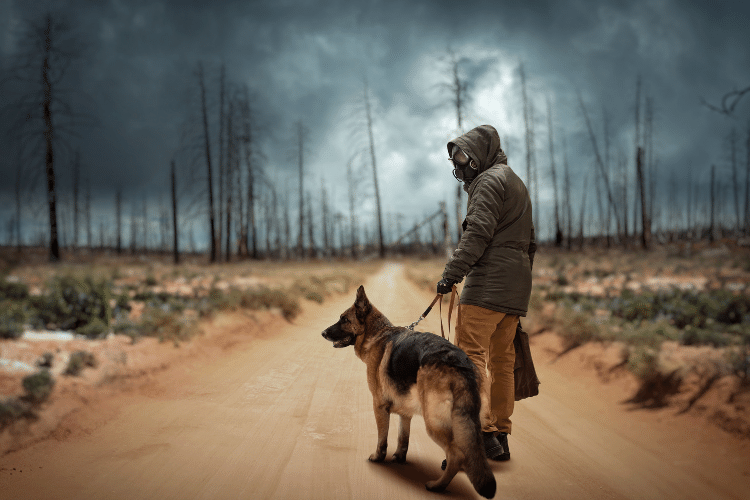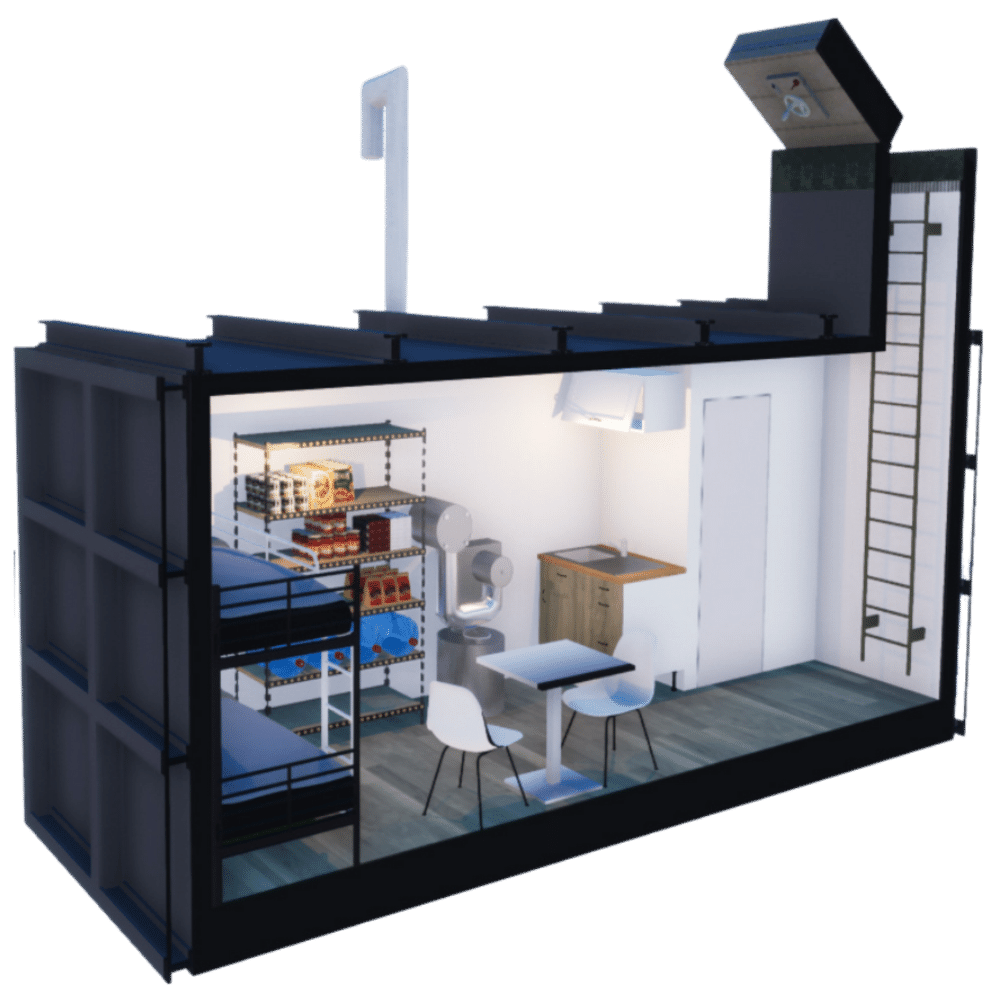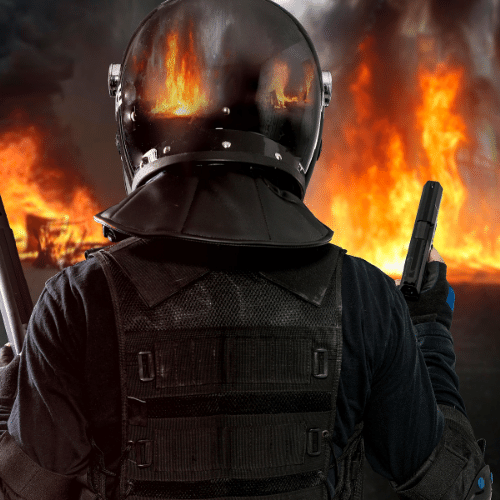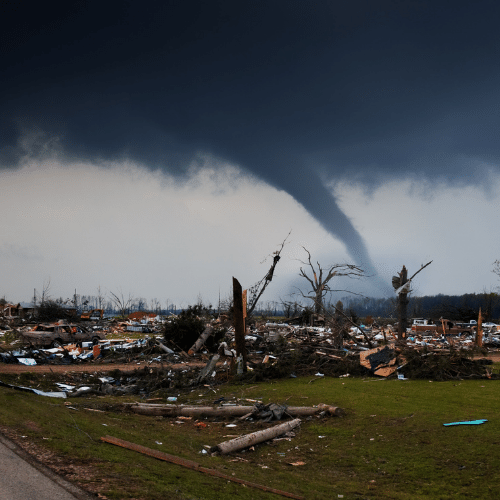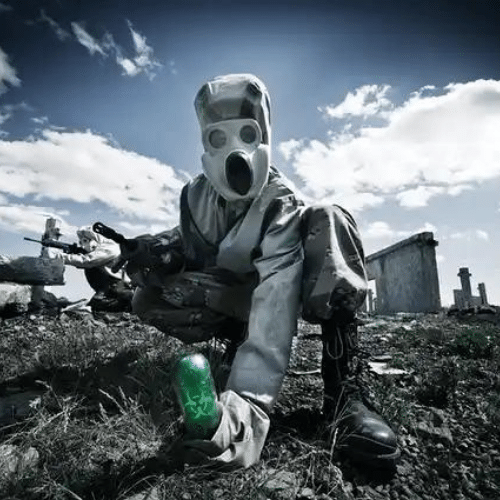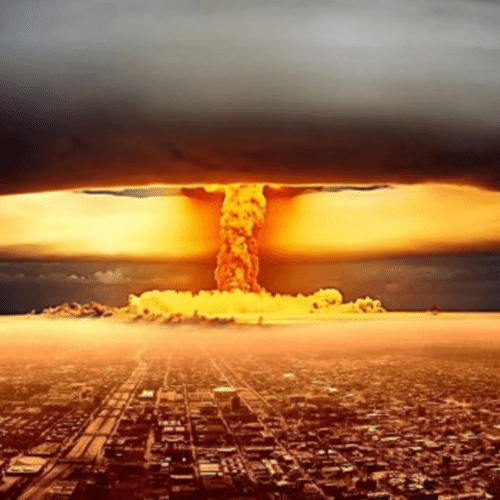Many people fear dying in a nuclear war. Given recent world events, this is a perfectly reasonable concern. The situation in Ukraine also reminds us that anything is possible in no time! In this context, many people wonder how to survive in the event of a nuclear disaster?
Indeed, since the outbreak of the war in Ukraine, all countries are moving towards an increasingly important armament. Add to that failed treaties, and nuclear war now seems to be a real possibility. The same goes for surviving it!
The last war and its consequences

Today's nuclear weapons are devastating nightmares, but people can and do survive even when they are close to the radius of the bomb blast. Japanese Tsutomu Yamaguchi survived the bombings of Hiroshima and Nagasaki and died at the age of 93. Yamaguchi wasn't the only person to survive both explosions, either, just the most famous. The horrific American bombings killed over 200,000 people, but approximately 70% of each city's population survived. Many lived with serious complications from the bombardment, but they lived.
Time to survive nuclear disaster
A nuclear explosion takes place in six stages. There is a flash of light, a wave of heat, a release of nuclear radiation, a ball of fire, a blast of air and finally the radioactive fallout.
This all happens very quickly – in just seconds – but modern early warning systems will probably give you a little time to react. In January 2018, for example, the state of Hawaii warned residents that a ballistic missile was on its way. It was a false alarm, but state officials estimated that if it was a real missile, the delay between warning and impact would likely have been 12 minutes.
Survive Nuclear Disaster in Explosion Zone
The blast zone of a nuclear explosion is broken down into three zones: the severe damage zone, the moderate damage zone, and the light damage zone. If you are in the high damage area (the area consumed by the fireball), your chances of surviving are very low. However, if you have time to get into a fallout shelter, you increase your chances of survival of 95%.
On the other hand, on the edges of the explosion, in areas of moderate and light damage, there is even more chance of survival. Your first instinct might be to hit the road at the time of the announcement? Stop! It could be a deadly mistake. The only thing you can do is take cover in your bunker.
Investing in a bunker is therefore always a good idea in these uncertain times. contact us for more information on how to build a bunker to survive.
The power unleashed...
Shelter in a building is extremely important for surviving the next stage of an explosion: the heat wave. For example, the power of a warhead like that of the Tsar bomb would deliver 50 megatons. Such power would destroy absolutely everything within a radius of 35 to 50 km and the heat wave would spread over a distance of about 100 km. This explosion is so powerful that at a distance of 100 km from the point of impact, it would still cause third degree burns. In these distances, only one fallout shelter can save you. To imagine being able to protect yourself in a building is heresy!
Survive after the bomb drops

Surviving the initial explosion requires a bit of luck, but staying safe after the initial detonation will certainly require a lot of patience.
The nuclear explosion will suck in thousands of tons of dirt and debris, coat that dirt and debris with the fission products created during the explosion, and after settling miles in the air, the heaviest particles then descend. They will be radioactive...
About 15 minutes after the initial explosion, this fallout will begin to travel through the atmosphere and settle on the ground. Being safe from this radioactive fallout is what will save you in a second time. Enter your fallout shelter and stay there while waiting to receive news from outside using your radio.
The good news about radiation is that it decays quickly. An hour after the explosion, approximately 50% of the fallout will have already disappeared. They will then have decreased by 80% after 24 hours. Eventually it will be time to leave your fallout shelter and brave a new world.
Our conclusion to survive nuclear disaster
Being inside a fallout shelter during a nuclear explosion is your only chance of survival. This is also the case after explosion! Indeed, your shelter will serve as your refuge for a period of time which could be several months. If atomic weapons were to be used in a generalized conflict, the next world would no longer be the same. We can illustrate this with the following quote from Albert Einstein:
“I don't know how World War III will be fought, but I know World War IV will be fought with sticks and stones. »
Albert Einstein
Investing in an atomic shelter is therefore the only chance of surviving in the world that awaits us after a nuclear runaway. In addition, your fallout shelter could protect you from many other risks we will face in the years to come. In this context, our engineers advise you free of charge during a construction study. Take advantage of contacting us for a no-obligation quote!
